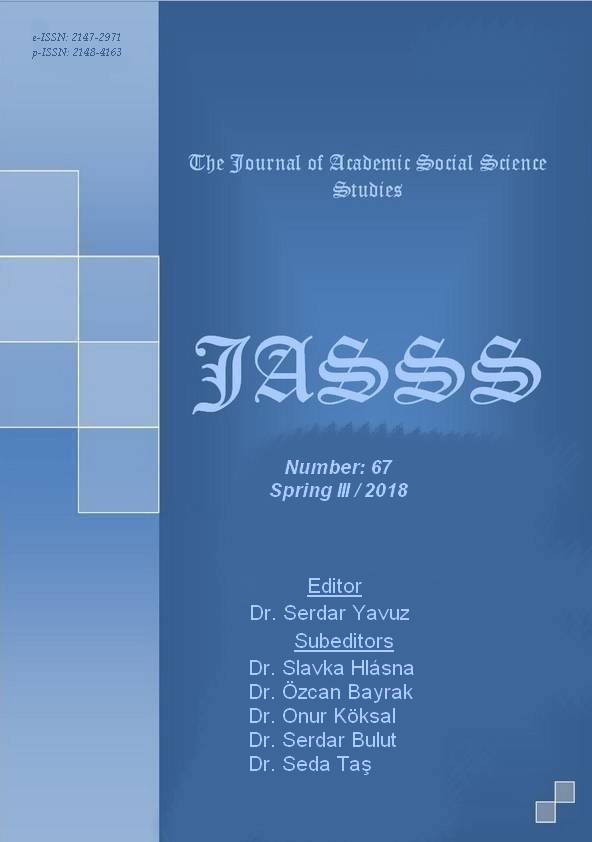Author :
Abstract
Türkiye’de Yeraltı edebiyatının popülerleşmesi, yaygın bir tür ya da alan olarak tartışılması, 1980 sonrası döneme rastlar. Fakat tıpkı diğer ulusların edebiyatlarında olduğu gibi kanonun dışında kalan ya da bırakılan edebi ürünlerin varlığı, Türkçedeki ilk edebi üretimlere kadar uzanır. Modern anlamda ilk örnekler ise Tanzimat sonrası dönemde özellikle II. Meşrutiyet’in ilanından sonra görülür. Türkiye’de, Yeraltı edebiyatına giden yolun ilk taşlarını döşeyen eserlerin temel özelliği, Doğulu ve muhafazakâr bir dokuya sahip Türkiye toplumunun yadırgatıcı bulduğu, açıkça konuşulmasını istemediği konulara el atmasıdır. Örneğin II. Meşrutiyet’in ilanından sonra Batı edebiyatlarından adapte edilen erotik hikâyeler bu anlamda cesur bir girişimdir. Bu girişimler arasında dikkati çeken yazarların başında ise Mehmet Rauf gelmektedir. Nitekim Servet-i Fünun döneminin Halit Ziya’dan sonraki en meşhur ve prestijli romancısı olan Mehmet Rauf, kendi edebî kariyerinde bir kırılma noktası yaratacak, toplum içerisindeki saygınlığını sarsacak, işini kaybetmesine hatta yargılanıp hapis yatmasına neden olacak Bir Zambağın Hikâyesi adlı novella tarzı hikâyesiyle Yeraltı edebiyatının Türkiye’deki ilk örneğini verir. Oscar Wilde’ın Violette’in Aşk Destanı adlı romanının adaptasyonu olan eserde, cinselliğin ve şehvetin toplumsal dayatmalara ve ahlak kurallarına göre değil, doğanın ve fizyolojinin ihtiyaçlarına ve arzularına göre yaşanması gerektiği ana fikri bağlamında, bir erkek ve iki kadın arasında kurulan eş cinsellik, erotizm ve şehvet içerikli bir hikâye anlatılır. Bir adaptasyon olsa da Türkiye ile Batı dünyası arasındaki medeniyet, tarih, kültür ve zihniyet farkları, Bir Zambağın Hikâyesi’ni kimi noktalardan Violette’in Aşk Destanı’ndan ayrıştırır. Bir başka ifadeyle geleneğe, dini ve ahlaki değerlere bağlı muhafazakâr toplum yapısını göz ardı eden Mehmet Rauf, “Türk usulü” bir Yeraltı anlatısı üretir. Sadece belirli dar bir çevrenin dikkatini çeken eser; el altında okunan, belirli çevrelerde popülerlik kazanan, kimi entelektüel ve eleştirmenler tarafından eş cinselliği, şehveti ve erotizmi oldukça cesur biçimde işleyen avangart bir Yeraltı anlatısı olarak kabul edilir.
Keywords
Abstract
The popularization of underground literature and its being disucessed as a widespread type or field run into the period after 1980.But , just as in the literature of other nations, the existence of literary works outside canon or those excluded from canon date back to first literary productions in Turkish. However, the first samples in modern sense appears after Tanzimat reform era and especially after the proclamation of II. Constitutional Period. The key feature of the works laying milestones of the way to underground literature in Turkey is that they address the issues which the oriental and conservative Turkey society find odd and dont want them to be spoken up. For instance, erotic tales adapted by western literatures after the proclamation of II. Constitutional Period is a courageous attempt in this sense. Among these attempts, Mehmet Rauf is the prominent writer. Thus, Mehmet Rauf, the most noted and prestigious writer of Servet-i Fünun Period after Halit Ziya, produces the first sample of underground literature with his novella type story named Bir Zambağın Hikayesi (The Tale of a Lily) which will later become a breaking point in his literary career , weaken his prestige in society, become the cause for his losing the job and even the cause for his judgement and serving time in prison. In the novel which is the adaptaion of The Romance of Violette by Oscar Wilde, homosexuality , erotism and a lustful story between a man and to women is told in the context of the central topic that sexuality and lust shouldn't be exprienced in accoredance with the societal impositions or ethics but in accordance with the needs and desires of the nature and physiology. Despite being an adaptaion, the differences in civilization, history, culture and mentality between Turkey and Western World make Bir Zambağın Hikayesi (The Tale of a Lily) different from The Romance of Violette in certain points. In other words, Mehmet Rauf who ignores the the conservative society which is closely engaged with traditions, moral and religious values, produces a "Turkish style" underground narration. The work, which draws attention of a particular small section of the community, is accepted by some intellectuals and critics as an avangrande underground narration which gains popularity in certain groups and is read secretly and which bravely deals with sexualtiy, lust and erotism.





